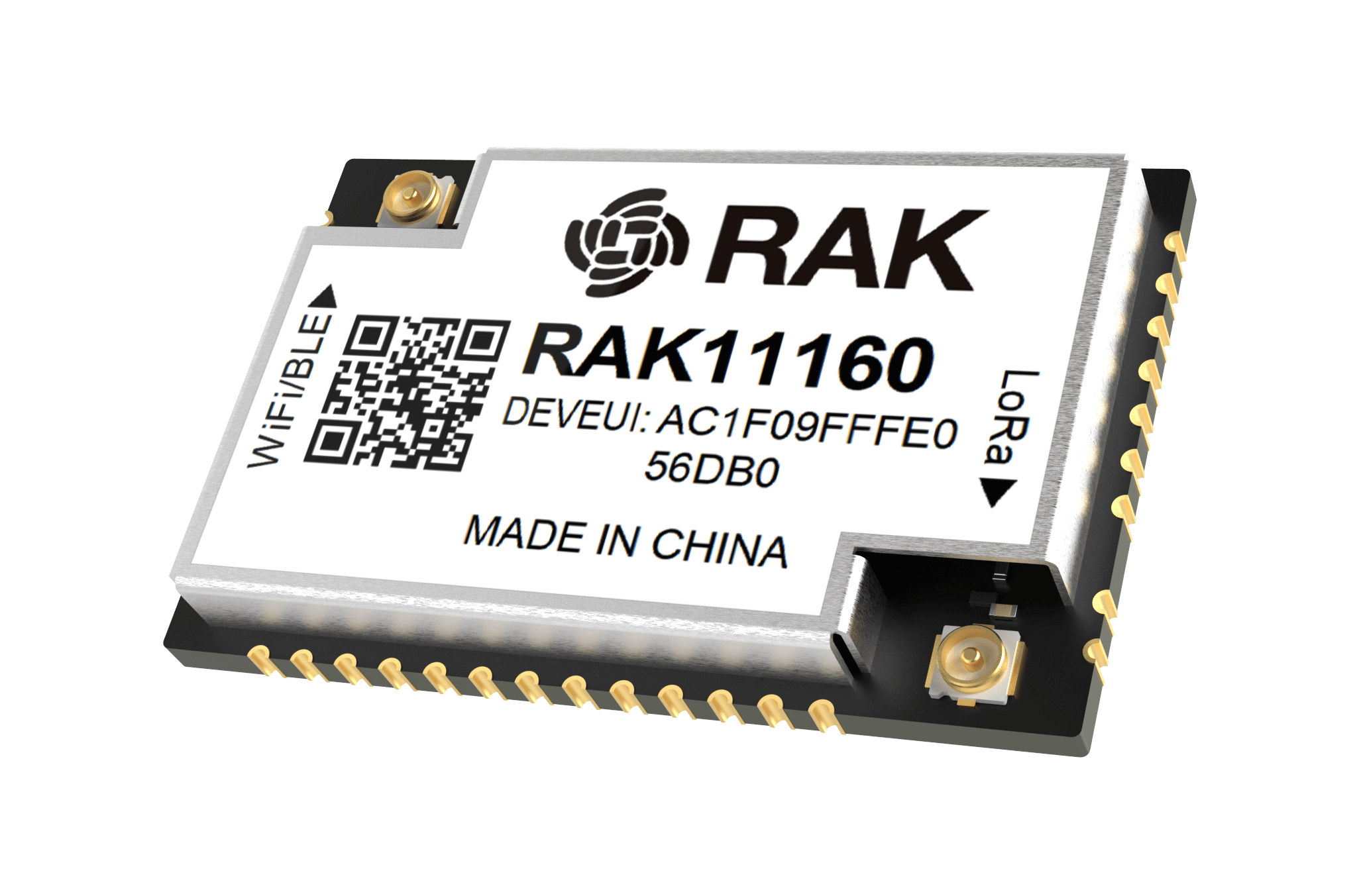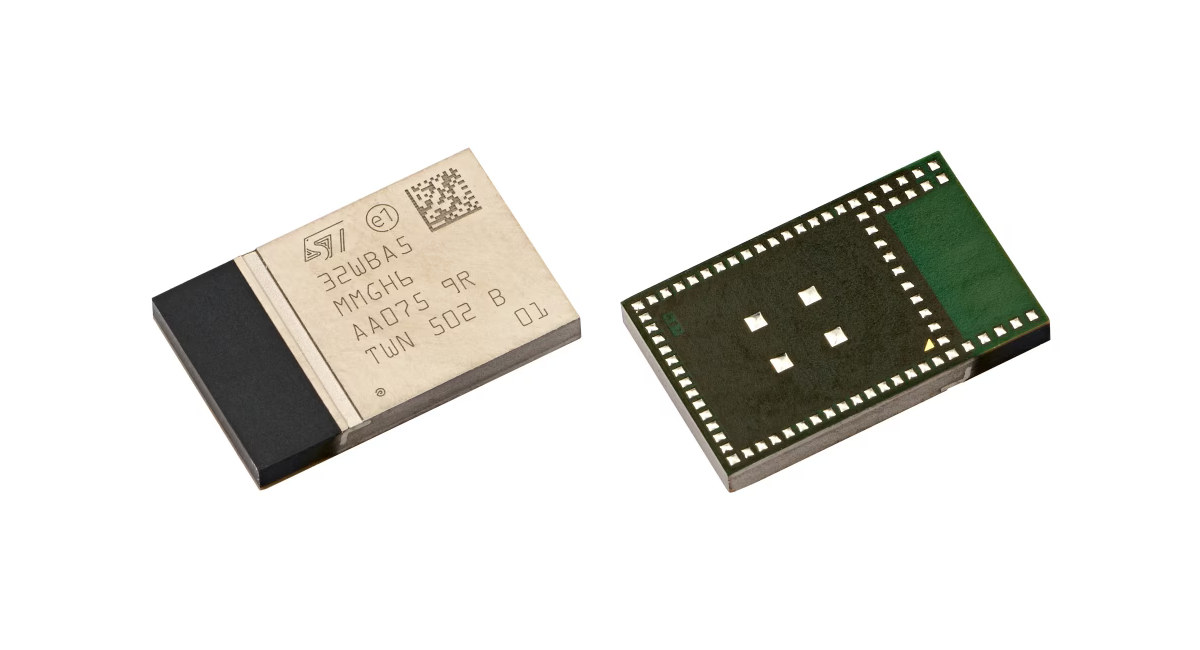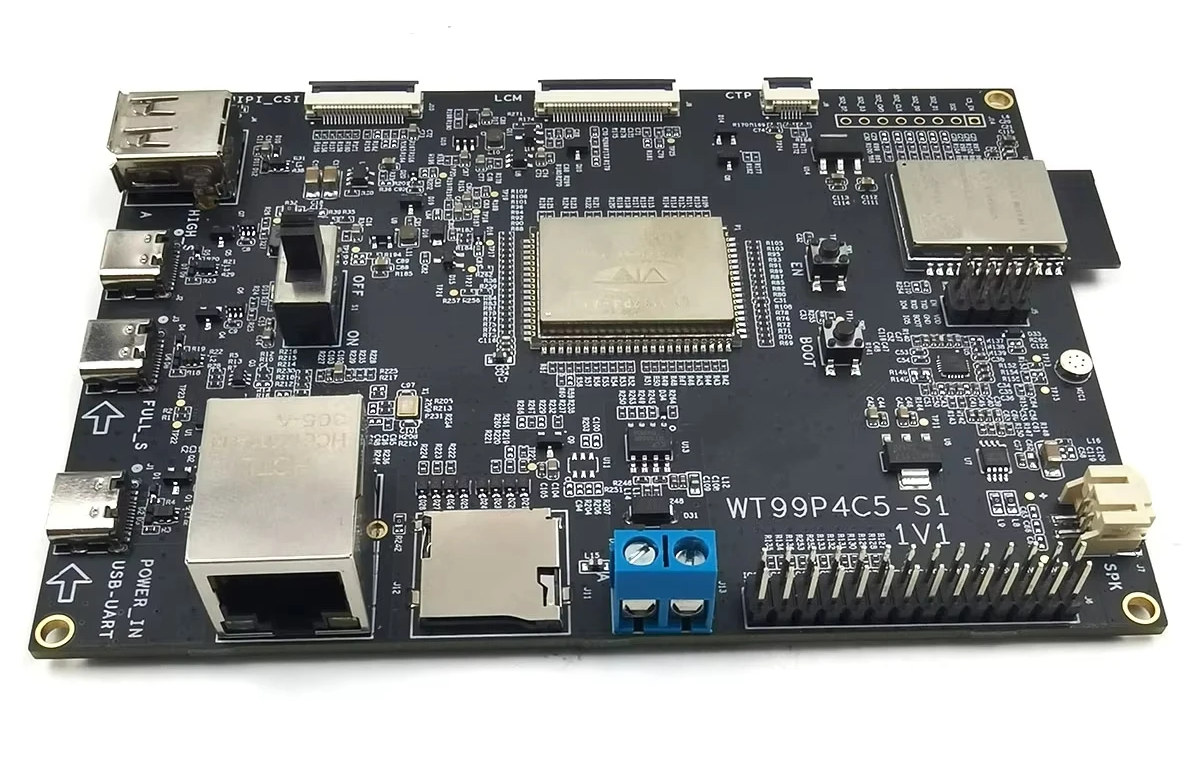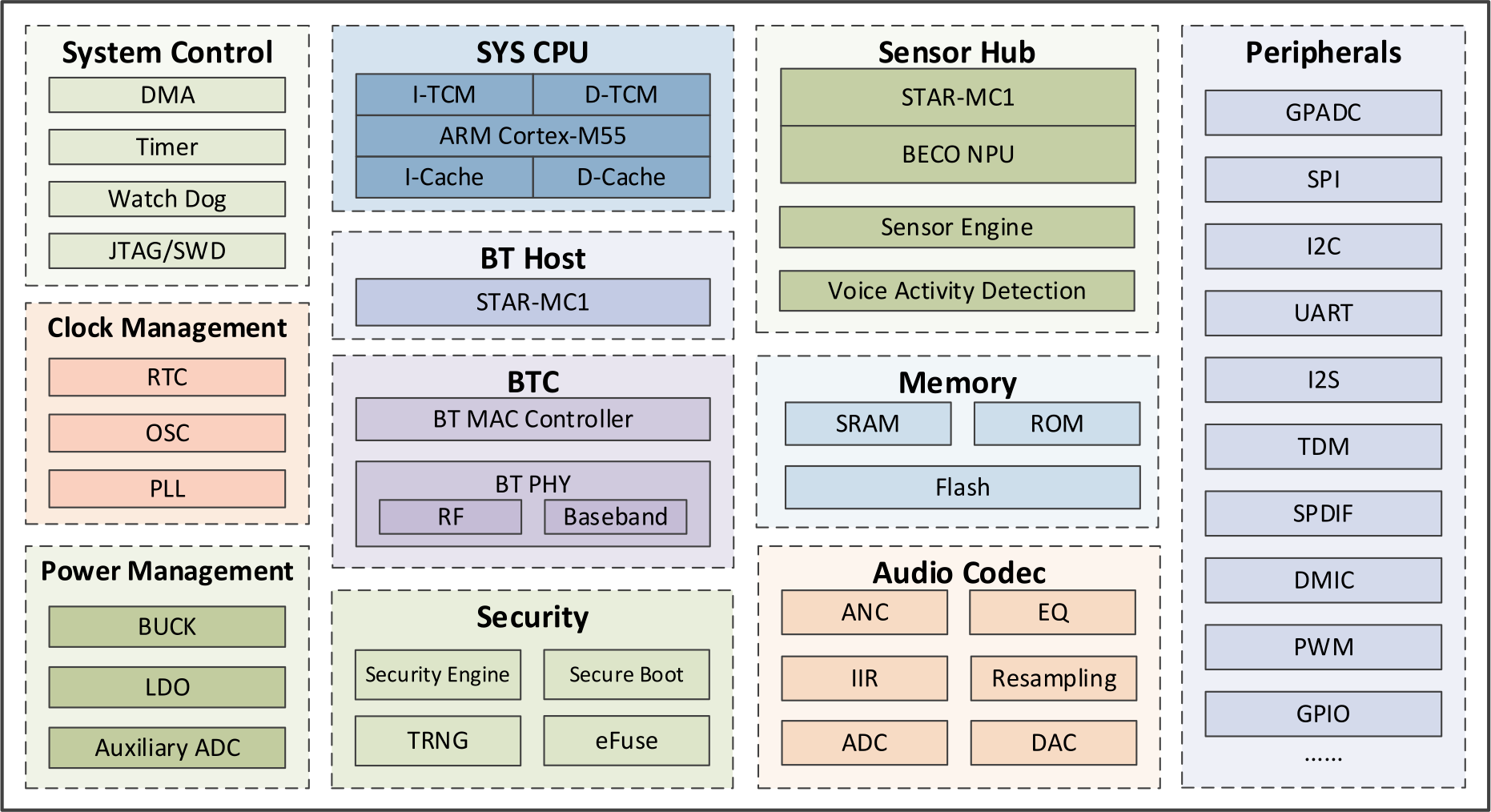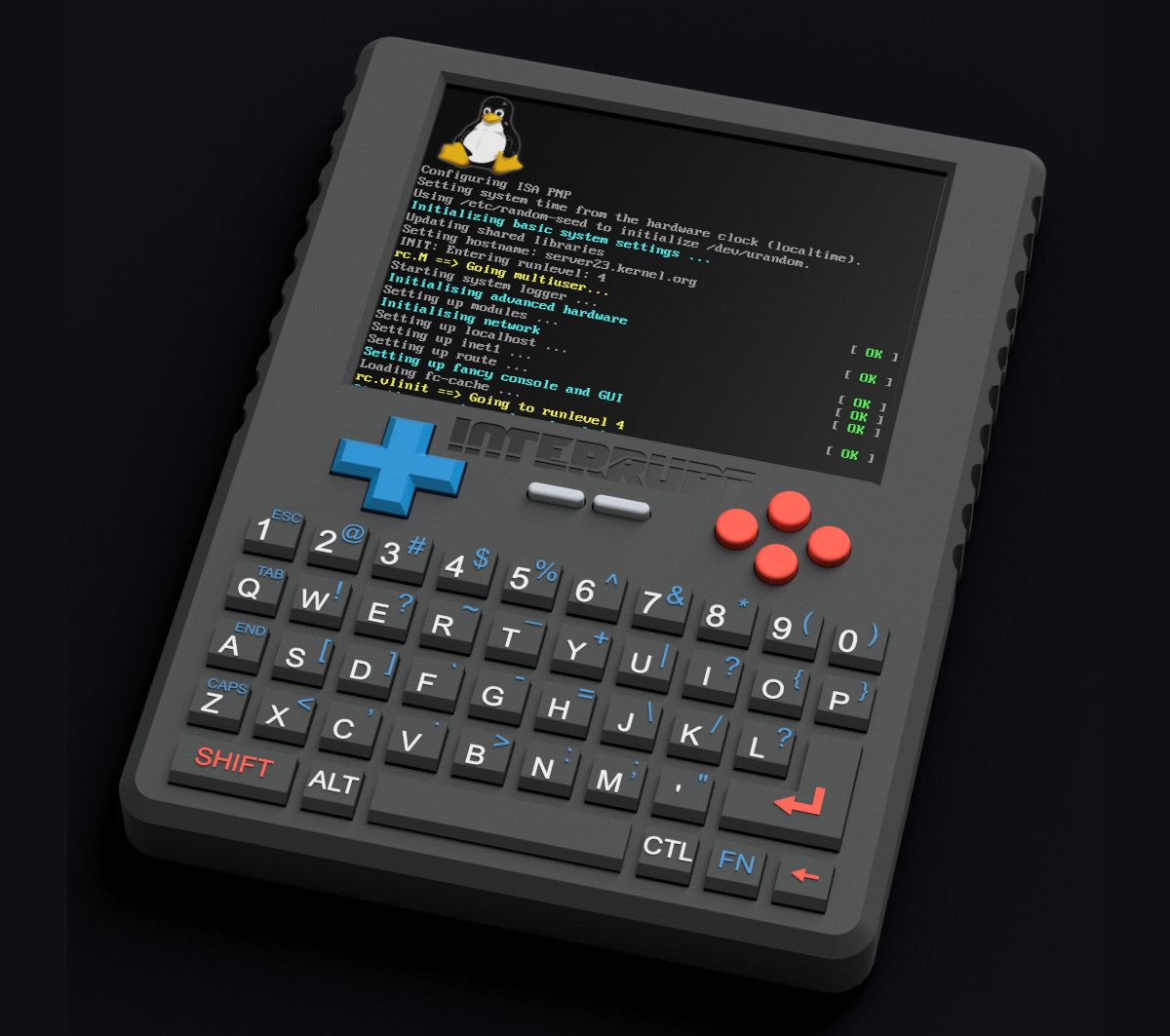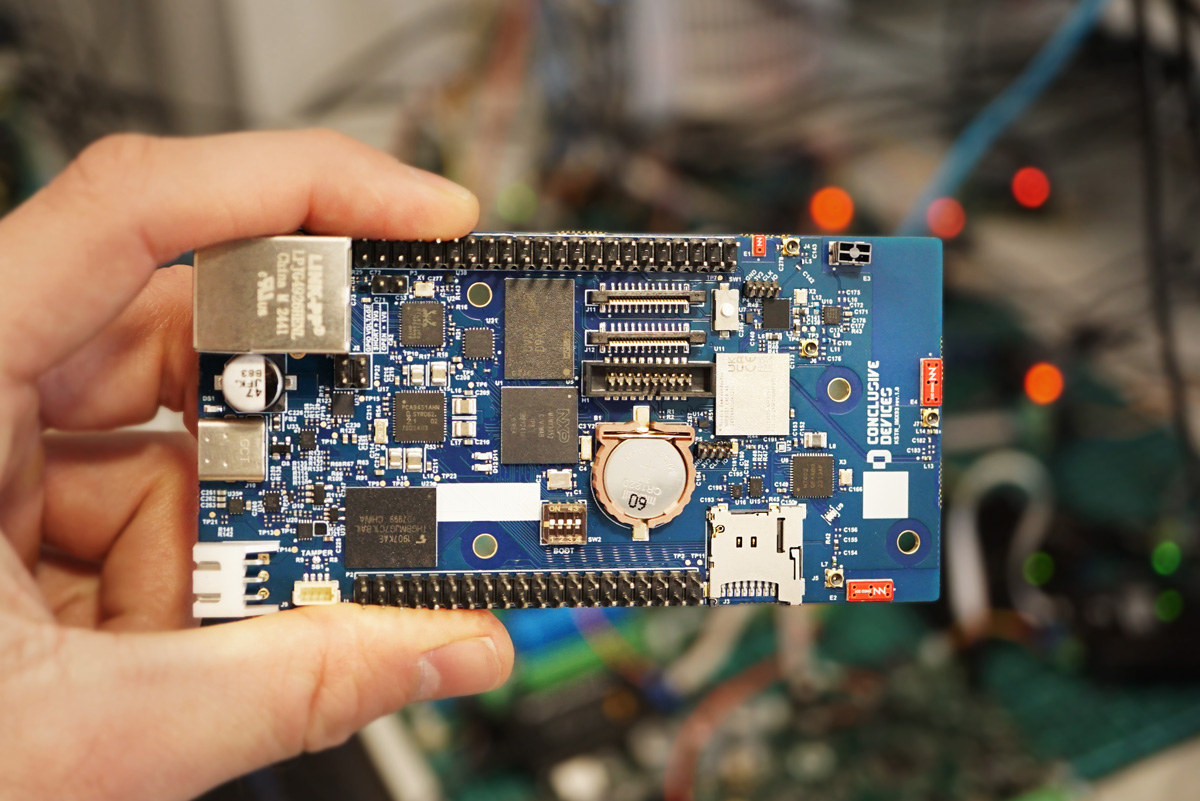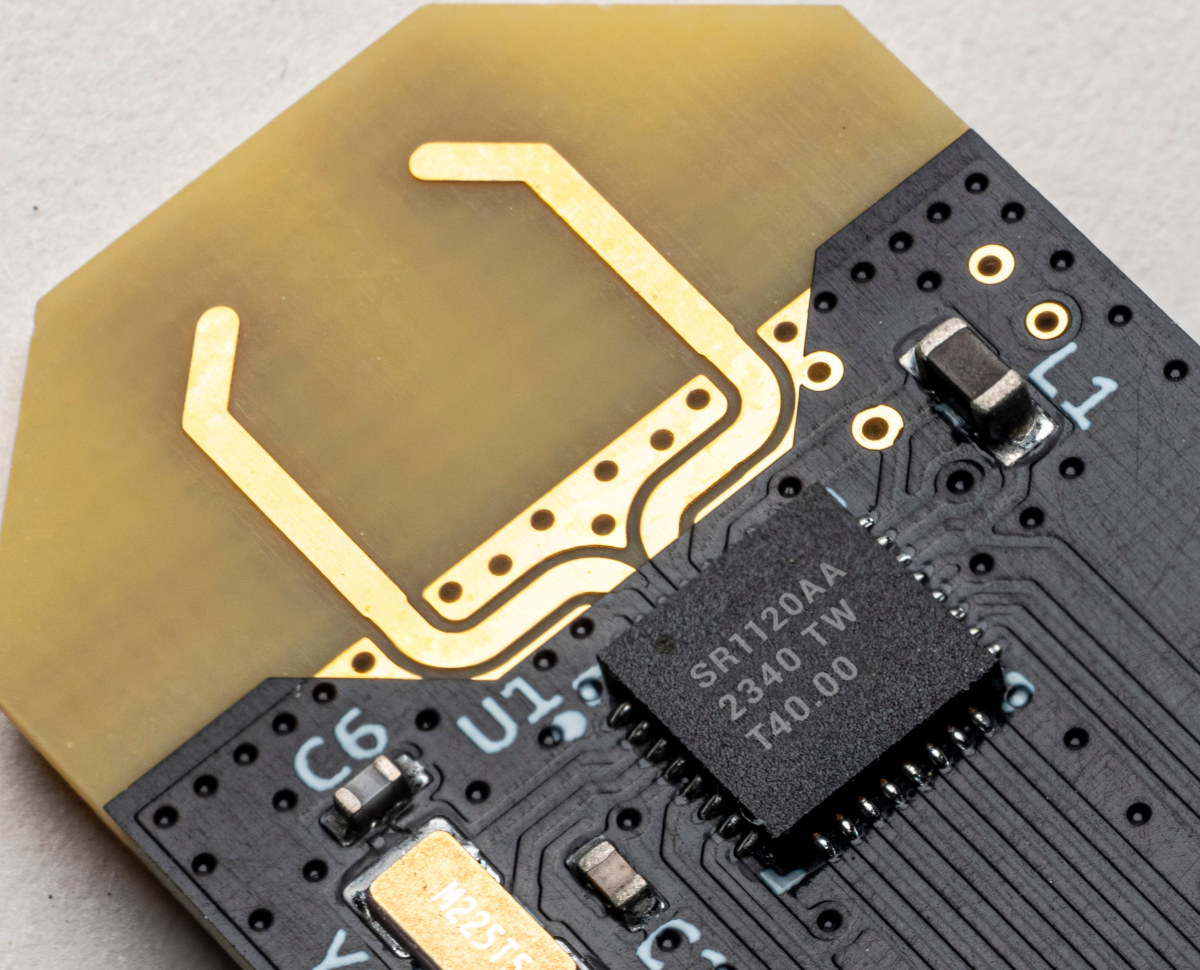RAKwireless RAK11160 is a new low-cost, low-power LoRaWAN, WiFi 4, and Bluetooth LE module based on ESP32-C2 (ESP8684) wireless microcontroller and STM32WLE5 LoRa SoC for LPWAN IoT applications. The company noticed that many people would combine their STMicro STM32WL-based RAK3172 WisDuo LoRaWAN module with an ESP32 module to add WiFi and/or Bluetooth connectivity to their projects besides LoRaWAN. So RAKwireless decided to offer a module combining both STM32WL and ESP32-C2 to offer a cheap and much more compact solution to their customers. RAK1160 was born. RAwireless RAK11160 specifications: LPWAN SoC/SiP – STMicro STM32WLE5 Core – Arm Cortex-M4 MCU @ 48 MHz Memory – 64 KB RAM Storage – 256 KB flash memory with ECC Wireless – Sub-GHz radio based on Semtech SX126x LoRaWAN 1.0.4 specification compliant Supported bands – EU433, CN470, IN865, EU868, AU915, US915, KR920, RU864, and AS923 LoRaWAN Activation by OTAA/ABP LoRa Point-to-Point (P2P) communication Tx Power Output – […]
STMicro STM32WBA5MMG is a tiny wireless module with Bluetooth LE 6.0, Zigbee 3.0, and OpenThread
STMicro’s STM32WBA5MMG is a tiny (12.5 x 8 mm), ultra-low-power 2.4 GHz wireless module based on the STM32WBA55UG wireless microcontroller with support for Bluetooth 6.0 LE, Zigbee 3.0, and OpenThread. The company further adds that designing a board for the module does not require any RF expertise, it provides a fully integrated Bill of Materials (BOM) with 32 MHz and 32 kHz crystals and integrated antenna matching or optional external antenna configurations, and its compatibility with 2-layer PCBs helps reduce costs. STM32WBA5MMG specifications: Wireless MCU – STMicro STM32WBA55UG Core – 32-bit Arm Cortex-M33 CPU with TrustZone®, MPU, DSP, and FPU Memory – 128 KB SRAM, including 64 KB with parity check Storage 1 MB flash memory with ECC, including 256 KB with 100 kcycles 512-byte (32 rows) OTP ART Accelerator – 8 KB instruction cache allowing 0-wait-state execution from flash memory (frequency up to 100 MHz, 150 DMIPS) Wireless Bluetooth […]
This ESP32-P4 board is equipped with an ESP32-C5 dual-band WiFi 6 module
All ESP32-P4 boards and devkits we’ve covered so far rely on ESP32-C6 for wireless connectivity, but the Wireless Tag WT99P4C5-S1 differs in that it pairs the ESP32-P4 RISC-V SoC with an ESP32-C5 wireless module featuring dual-band WiFi 6, Bluetooth LE 5.0, and an 802.15.4 radio for Zigbee, Thread, and Matter connectivity. The board also features MIPI DSI and CSI connectors for a display and a camera, GPIO headers for the ESP32-P4 and ESP32-C5 modules, a microSD card slot, a Fast Ethernet port, a built-in microphone, a speaker connector, an RS485 terminal block, and a few USB ports for data and debugging. Wireless Tag WT99P4C5-S1 board specifications: Core module – Wireless Tag WT0132P4-A1 SoC – Espressif Systems ESP32-P4 CPU Dual-core 32-bit RISC-V HP (High-performance) CPU @ up to 400 MHz with AI instructions extension and single-precision FPU Single-RISC-V LP (Low-power) MCU core @ up to 40 MHz with 8KB of zero-wait […]
Bestechnic BES2700YP Arm Cortex-M55 Bluetooth Audio SoC targets headphones, earbuds, portable speakers
Bestechnic BES2700YP is an Arm Cortex-M55 Bluetooth Audio SoC designed for Smart earbuds with adaptive ANC, Smart Bluetooth headphones/headsets, ANC hearing-aids, Bluetooth speakers, and other portable audio devices When I wrote about the Ambiq Apollo330 Plus SoC family last week, I realized it was the first time I covered Arm Cortex-M55 microcontrollers with built-in wireless, in that case Bluetooth LE 5.4 and 802.15.4 (Thread/Matter) radios, and that’s how I came across the BES2700YP SoC with a more narrow use cases since it’s made for Smart Bluetooth audio applications. BES Technic BES2700YP key features and specifications: CPU Subsystem – Arm Cortex-M55 core Sensor Hub Subsystem – Arm STAR-MC1 core (improved Arm Cortex-M33 core) with sensor engine, BECO NPU, and VAD (Voice Activity Detection) Memory – 4 MB SRAM shared across the CPU, Bluetooth, and Sensor Hub cores Storage – Flash in package, boot ROM Bluetooth Subsystem Arm STAR-MC1 core (Arm Cortex-M33 […]
Silicon Labs SiXG301 and SiXG302 “Series 3” wireless SoCs are built for line-powered and battery-powered IoT applications
Silicon Labs has just introduced the first 22nm Series 3 SoCs with the SiXG301 and SiXG302 Arm Cortex-M33 multiprotocol wireless SoCs designed for line-powered and battery-powered IoT devices, respectively. The SiXG301 is offered with 4MB flash and 512 KB SRAM, embeds an LED pre-driver for advanced LED smart lighting and smart home products, and supports 2.4 GHz wireless protocols such as Bluetooth, Zigbee, and Thread with support for Matter. The upcoming SiXG302 Bluetooth and Matter SoC offers an ultra-low-power consumption using only 15 µA/MHz active current, or 30% lower than competitive devices in its class, and as such is ideal for battery-powered wireless sensors and actuators. We’ll be focusing on the SiMG301 multi-protocol SoC and SiBG301 Bluetooth LE SoC in this article since the details are sparse for the SiXG302 parts (SiMG302 and SiBG302). Silicon Labs SiMG301 / SiBG301 specifications: MCU Core – 32-bit Arm Cortex-M33 with DSP instructions and […]
Interrupt – A Linux-based Flipper Zero alternative with WiFi 4, Bluetooth, sub-GHz radios, NFC/RFID reader, IR Tx/Rx (Crowdfunding)
Interrupt is a Raspberry Pi Zero 2 W-based wireless hacking tool that provides a Linux-powered alternative to the popular Flipper Zero with a built-in 3.5-inch touchscreen display and keyboard to easily type commands in the terminal. Besides the WiFI 4 and Bluetooth 4.2 radios from the Raspberry Pi Zero 2 W, the Interrupt also integrates a Texas Instruments CC1001 Sub-GHz wireless MCU working in the 300 to 928 MHz frequency range, an NFC/RFID reader, and an infrared receiver & receiver. The system also provides access to GPIO pins for expansion. Interrupt specifications: Supported SBC – Raspberry Pi Zero 2 W SiP – Raspberry Pi RP3A0 system-in-package with: SoC – Broadcom BCM2710A1 quad-core Arm Cortex-A53 @ 1GHz (overclockable to 1.2 GHz) with VideoCore IV CPU supporting OpenGL ES 1.1, 2.0 graphics Memory – 512MB LPDDR2 Storage – MicroSD card socket Wireless – 2.4GHz IEEE 802.11b/g/n Wi-Fi 4 and Bluetooth 4.2 with […]
KSTR-IMX93 single board computer pairs NXP i.MX 93 SoC with Nordic Semi nRF5340, nRF9151, and nRF7002 wireless chips
Conclusive Engineering KSTR-IMX93 is a single board computer (SBC) powered by an NXP i.MX 93 Cortex-A55/M33 AI SoC and equipped with three Nordic Semi wireless solutions, namely nRF5340 SoC, nRF9151 SiP, and nRF7002 WiFi 6 coprocessor. This allows the board to offer a wide range of wireless and wired connectivity options with Gigabit Ethernet, dual-band WiFi 6, Bluetooth 5.4 LE, Zigbee, Thread, NB-IoT, LTE Cat-M1, and GNSS. In some way, the KSTR-IMX93 is the equivalent of combining a Nordic Thingy:91 X Cellular IoT development platform with an Arm Linux SBC. KSTR-IMX93 specifications: SoC – NXP i.MX 93 CPU Single or dual-core Arm Cortex-A55 up to 1.7 GHz Arm Cortex-M33 up to 250 MHz GPU – PXP 2D GPU with blending/composition, resize, color space conversion NPU – Arm Ethos-U65 NPU @ 1 GHz up to 0.5 TOPS Memory – 640 KB OCRAM w/ ECC Security – EdgeLock Secure Enclave System Memory […]
SPARK Microsystems SR1120 UWB ultra-low-power transceiver delivers up to 41 Mbps throughput
SPARK Microsystems SR1120 is the company’s second-generation ultra-wideband (UWB) wireless transceiver capable of up to 41 Mbps throughput at ultra-low power and up to 100 times lower power ranging than UWB competitors. The Canadian company also highlights the outperformance of their UWB solution over Bluetooth with the new SR1120 offering 40 times higher data rates than Bluetooth chips, while consuming 25 times less power than Bluetooth and offering 60 times lower latency. However, readers should note that Bluetooth LE is supposed to support up to 2 Mbps, so it should (only) be up to about 20 times faster, and Bluetooth HDT is coming soon with data rates of up to 7.5 Mbps to further narrow the gap. SPARK SR1120 key features and specifications: Compliant with the upcoming IEEE 802.15.4ab low-energy UWB PHY standard Dynamically reconfigurable UWB spectrum 6.2–9.5 GHz band Up to 3 dBm TX power RX sensitivity of -81 […]


